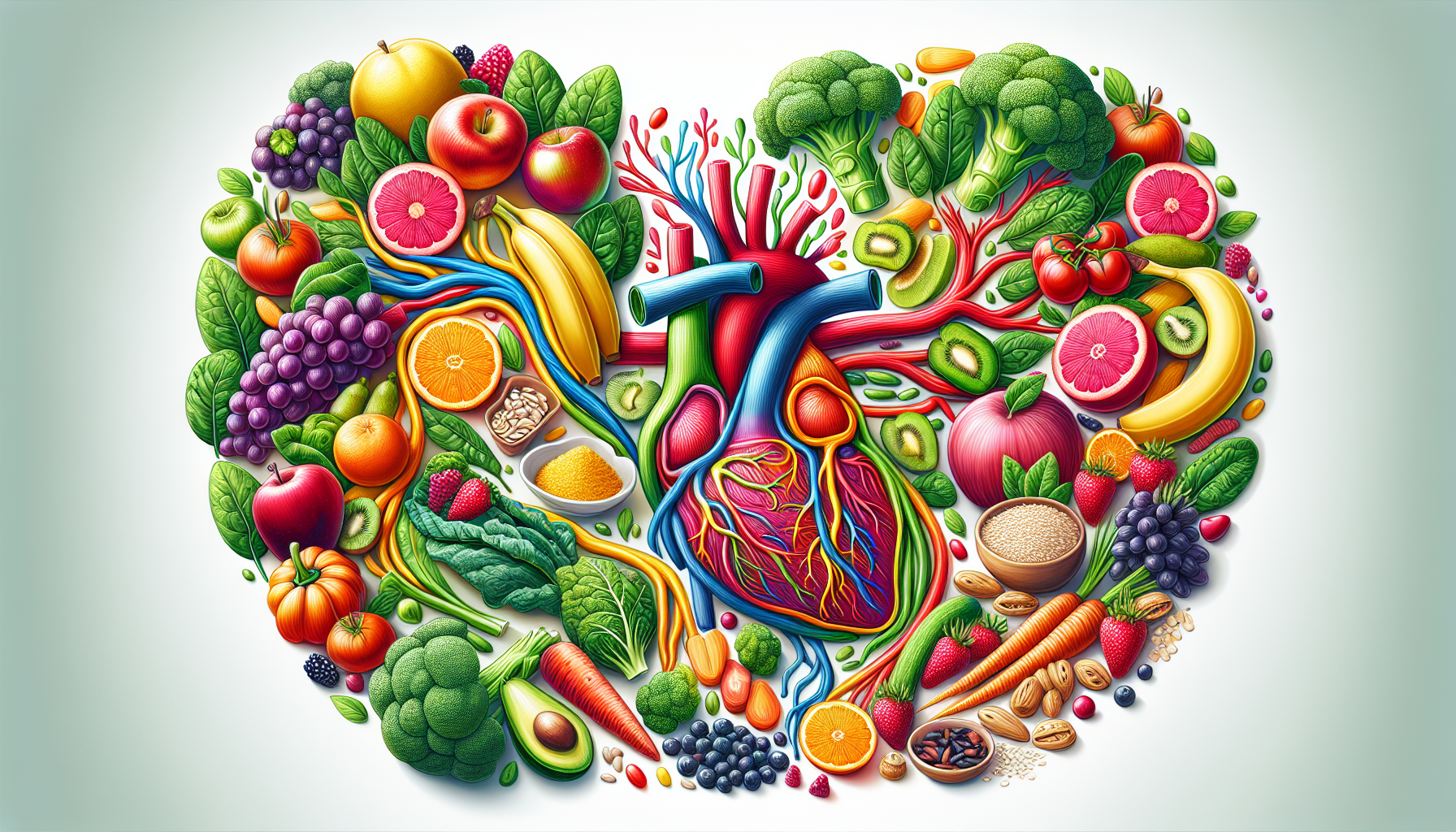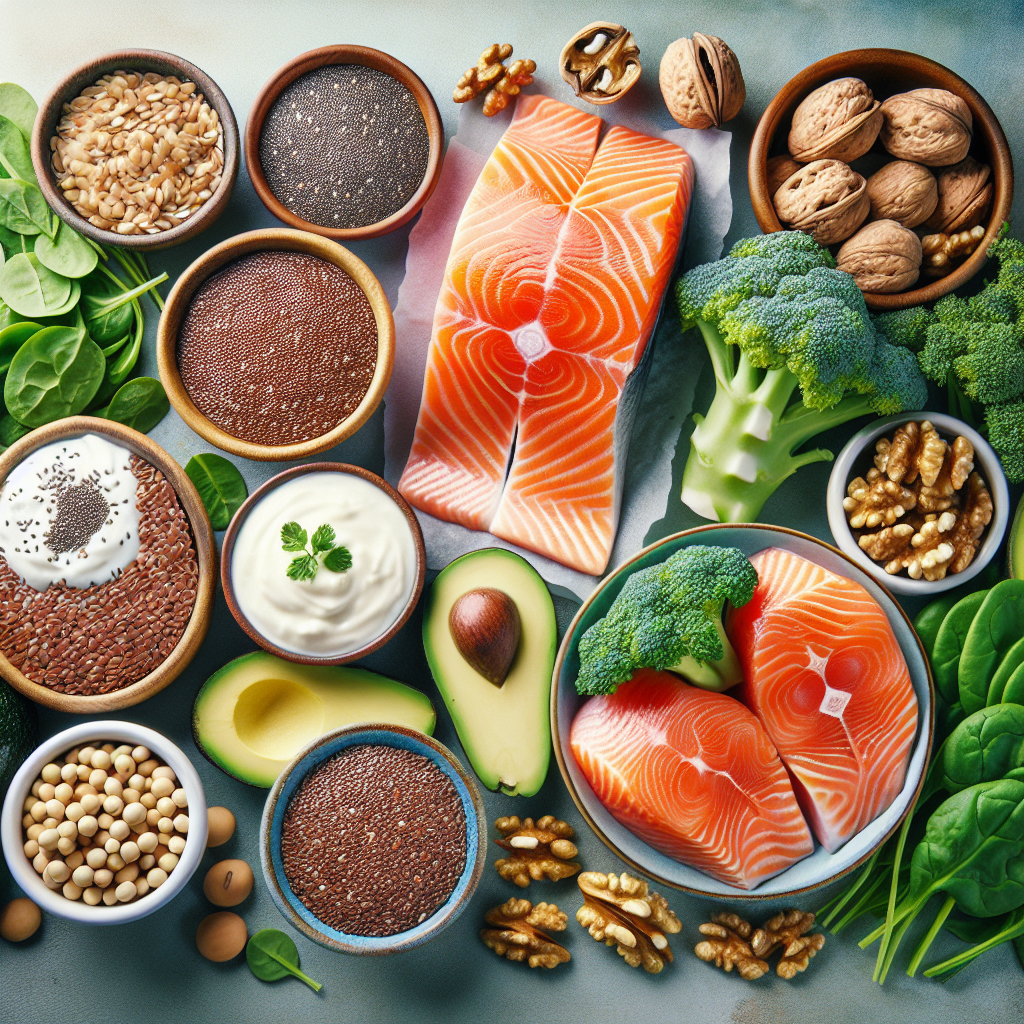Vascular health is the cornerstone of a long and active life. The intricate network of arteries, veins, and capillaries that make up our cardiovascular system is responsible not just for the circulation of blood, but also for the delivery of essential nutrients and the removal of waste products from our body. In recent years, the focus on improving vascular health has intensified, with targeted nutrition emerging as a key strategy. This article delves into the nuances of how specific dietary changes can bolster cardiovascular function and overall wellness.
The Role of Nutrition in Vascular Health
The adage "you are what you eat" resonates particularly well when it comes to vascular health. The foods we consume have a direct impact on the health of our blood vessels. Nutrients like vitamins, minerals, and antioxidants play a pivotal role in maintaining the integrity and flexibility of vascular walls. Moreover, a diet that is balanced and rich in certain foods can help reduce inflammation, lower blood pressure, and minimize the risk of plaque buildup, which is a precursor to atherosclerosis.
Antioxidants and Cardiovascular Disease Prevention
Antioxidants are substances that can prevent or slow damage to cells caused by free radicals. These free radicals are molecules produced when your body breaks down food or when you’re exposed to tobacco smoke and radiation. A diet rich in antioxidants is beneficial for maintaining a healthy heart and preventing cardiovascular diseases. Foods like berries, leafy greens, and nuts are packed with antioxidants and should be a staple in a heart-healthy diet. For more on the role of antioxidants in cardiovascular health, read about The Importance of Antioxidants in Cardiovascular Disease Prevention.
Omega-3 Fatty Acids
Omega-3 fatty acids are a type of unsaturated fatty acid that’s thought to reduce inflammation throughout the body, a condition that can damage your blood vessels and lead to heart disease. Sources of omega-3 fatty acids include fish, such as salmon and trout, and flaxseed, chia seeds, and walnuts. Incorporating these into your diet can have profound effects on your vascular health.
Reducing Sodium Intake
High salt consumption is a major contributor to hypertension, a significant risk factor for the development of heart disease and stroke. A diet that limits salt intake can help keep blood pressure in check. Processed and packaged foods often contain high levels of sodium, so it’s crucial to read labels and choose lower-sodium options. Discover more about this by exploring The Impact of Salt Consumption on Heart Health.
The Connection Between Diet and Heart Function
The heart is an organ that thrives on proper nutrition. Diets that are high in processed foods, saturated fats, and sugars have been linked to heart disease. Conversely, a diet that emphasizes whole foods, such as fruits, vegetables, whole grains, lean proteins, and healthy fats, supports the heart’s function and reduces the risk of heart disease.
Dietary Fats and Heart Health
Not all fats are created equal. Trans fats and certain saturated fats can increase your risk of heart disease, while monounsaturated and polyunsaturated fats can protect your heart. Olive oil, avocados, and certain nuts contain heart-healthy fats that can help manage cholesterol levels. The impact of different types of dietary fats on heart health is complex but crucial. For a deeper understanding, consider reading about The Impact of Dietary Fats on Cardiovascular Health.
Fiber and Heart Health
Fiber is another essential nutrient for heart health. Soluble fiber, found in oats, legumes, apples, and carrots, can help lower blood cholesterol levels by binding with cholesterol particles in the digestive system and moving them out of the body before they’re absorbed. Moreover, a high-fiber diet can also help control blood sugar levels and promote a healthy weight, both of which contribute to cardiovascular health.
External Resources to Support Vascular Health Improvement
In addition to the insights provided in this article and the resources linked within, there are several external websites offering valuable information on improving vascular health through nutrition:
- The American Heart Association provides guidelines on dietary recommendations for heart health.
- Harvard Health Publishing offers in-depth articles on the latest research regarding heart-healthy diets.
- The National Institutes of Health has a vast library of resources, including studies on the impact of nutrition on vascular health.
By exploring these resources, readers can gain a more comprehensive understanding of how to support their cardiovascular system through diet.
Integrating Nutrition with Overall Cardiovascular Care
While targeted nutrition is pivotal, it’s also essential to integrate these dietary practices with wider cardiovascular care strategies. Regular physical activity, stress management, and avoiding tobacco are all crucial components of maintaining heart health. For those already managing cardiovascular conditions or risk factors, it’s important to work with healthcare providers to tailor nutrition and lifestyle interventions to individual needs.
Conclusion
Targeted nutrition is a powerful tool in the quest for optimal vascular health. By focusing on a diet rich in antioxidants, omega-3 fatty acids, and fiber, while limiting harmful fats and sodium, we can significantly improve the function and longevity of our cardiovascular system. Remember, the path to a healthy heart is a journey that combines informed dietary choices with an overall healthy lifestyle and proper medical care. For further reading on related health topics, visit Cardiovascular Health on the Avix Health website.
Embarking on this journey not only safeguards your heart but also enhances your quality of life, allowing you to live fully and vigorously at every stage.



